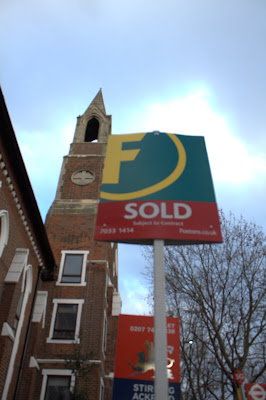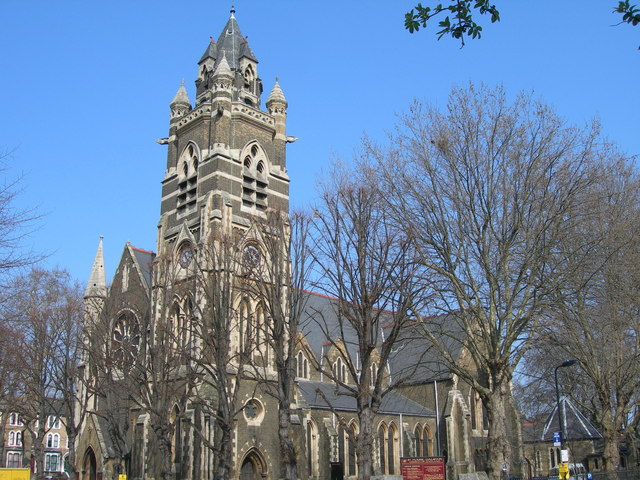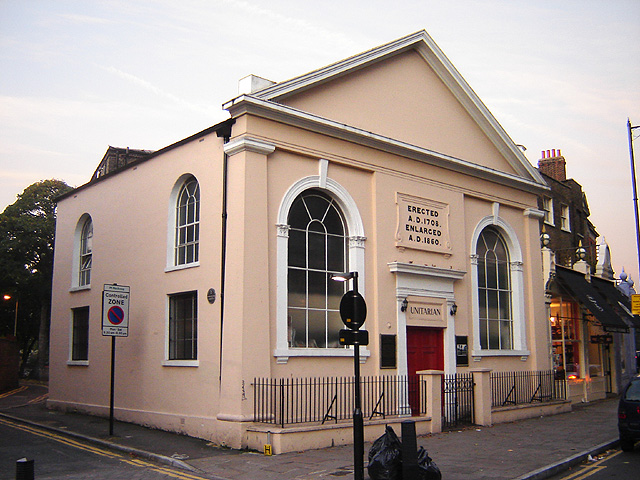Dear God
It’s been over a year since I wrote to you but as you know that’s because I don’t believe you exist. However I do firmly believe in the conviction of your followers and would like to thank all the Christians in the East End for being so welcoming to my agnostic quest. The people who own your house are a very mixed bunch. After a year of Sundays I have met a far more diverse cross section of society than the entire nine years I have lived in London. So I have decided to end my blog with a letter to you so I could compare the initial intentions of my original letter to this week’s final conclusions. I guess you know it all but I will write it all down anyway so the reader gets an impression of my non-religious pilgrimage.
The Failures
The clear failure is that I still don’t believe in you and I have wasted an entire year going to church to find faith. In all honesty that was never the entire reason for embarking on my non spiritual journey. My hidden voyeuristic motivations were church architecture, London communities and multiculturalism. But that it has still been disappointing to see how much joy you give the people who do believe in you knowing it is beyond me.
Besides missing a service in August (due to the church being closed) I have adhered to all the commandments I set myself last January. Arguably my “Third Commandment: One will always be honest about his or her reasons for attending the church service,” was considerably hard to implement. Often church members would take my silence as confirmation of belief. In conversation I would later inform them of my odd agenda and they would always smile. So many smiles all meaning different things, some not listening, some indifferent and some genuinely interested. Even I’m not arrogant enough to set about correcting everyone in the congregation that I was a non-believer but I am sure it would have made for funnier services.
Originally I was interested in engaging and responding to academic and atheist critics like Richard Dawkins, John Grey and Steven Pinker who have been critical of religion. Despite liking their literature it really lacks any understanding of people who go to church and more focuses on the dogma. Academia seems entirely interested in the general dogma of religion not realising religion adapts to individuals who form it (more on this later). I did wish to bridge the gap between the individual within the congregation and the rest of the church but sadly my egocentric writing style, my church hopping structure and my lack of time and dedication left me to fall short of creating an accurate, thorough and definitive picture of a modern church going community. Instead my writing did at times feel reductive, cheap, clichéd and recycled but I contest I have always remained honest despite my repetitive limitations.
Achievements
 My writing has improved vastly, in that I’m consistently still writing other material all formed from the commitment I gave my blog. I even flirted with the idea of writing a play based on my experiences from my blog and erase the elements I dislike most from my blog (i.e. me). The blog provided the opportunity not just to meet church communities from all over the East End but to learn the history of the area. My favourite story was the Clapton Messiah (see post-dated 18/05/11) but I have become generally impressed by how often the buildings outlived their original congregation (see again post-dated 18/05/11). Sadly even the old Lutheran church occupied by Pentecostal pensioners I visited in January (see post-dated 16/01/11) is now vacant. Witnessing and understanding the changing faces of the church community has made me appreciate how history is in a constant flux and how quickly the past is forgotten (especially in London) which has added personal value to my blog. My love for church architecture existed long before the blog and has continued to grow throughout the year but has become slightly eclipsed by my new fascination with the varying processes of religious worship. The East End churches contain so many different ways to worship God that it outwardly demonstrates religious differences through the performance of ritual instead of sectarian rhetoric. Christians are often portrayed as hugely self-righteous and dogmatic in the media (and these people do exist) but actually the majority I met were very peaceful and introverted, especially in regards to worship. Using the term Christian is too general. The biggest gift the blog has given me has been the opportunity to learn about the many different cultures and diverse people who call themselves Christians.
My writing has improved vastly, in that I’m consistently still writing other material all formed from the commitment I gave my blog. I even flirted with the idea of writing a play based on my experiences from my blog and erase the elements I dislike most from my blog (i.e. me). The blog provided the opportunity not just to meet church communities from all over the East End but to learn the history of the area. My favourite story was the Clapton Messiah (see post-dated 18/05/11) but I have become generally impressed by how often the buildings outlived their original congregation (see again post-dated 18/05/11). Sadly even the old Lutheran church occupied by Pentecostal pensioners I visited in January (see post-dated 16/01/11) is now vacant. Witnessing and understanding the changing faces of the church community has made me appreciate how history is in a constant flux and how quickly the past is forgotten (especially in London) which has added personal value to my blog. My love for church architecture existed long before the blog and has continued to grow throughout the year but has become slightly eclipsed by my new fascination with the varying processes of religious worship. The East End churches contain so many different ways to worship God that it outwardly demonstrates religious differences through the performance of ritual instead of sectarian rhetoric. Christians are often portrayed as hugely self-righteous and dogmatic in the media (and these people do exist) but actually the majority I met were very peaceful and introverted, especially in regards to worship. Using the term Christian is too general. The biggest gift the blog has given me has been the opportunity to learn about the many different cultures and diverse people who call themselves Christians.A Church for Every Sunday in the Year
So as I tally all the churches, my church appearance table reads like this…
17 Anglican Services
8 Pentecostal/Charismatic Services
6 Roman Catholic services
6 Evangelical services
4 Baptist Services
3 Methodist Services
2 Orthodox (Greek + Georgian) Services
2 United Reformed Church
1 Salvation Army
1 Jehovah Witnesses
1 Unitarian Church
1 Quaker Meeting
The table can be misleading as it inaccurately links the very different churches together because they share the same denomination. For example you can read my two conflicting posts on The United Reformed Church and see little similarities. One post concerns the small, white and contemplative congregation of the Round Chapel (posted 25/08/11) on Lower Clapton Road and the other a predominantly black and evangelical congregation (posted on 20/03/11) on Upper Clapton Road (both just a short walking distance from each other) they are culturally different worlds yet members of the same church and live very near each other. Most evangelical services can be mistaken for Pentecostal services as they are only separated by names and titles. Evangelists appear to be richer and more established than the more recent Pentecostal churches but the institutions differences in worship appear more cultural than religious. Also the Open Door Baptist church in Hackney (Posted 26/06/11) shared West African traditions of worship more commonly found in the Pentecostal church than in comparison to their Baptist neighbours in Victoria Park, Shoreditch and Stoke Newington. Not that any of the Pentecostal churches want to build bridges with each other, instead they appeared more interested in claiming that they worship the one true God. Many churches call themselves Pentecostal, Charismatic and Apostolic but few want to build a networked identity instead they prefer to remain small. Cultural divisions within the denominations really indicated how it’s the communities that form the church and not churches forming the communities. Religion in post-colonial Britain has not become a relic of the old empire era but seems to have been transformed as a vessel of empowerment for the dispersed Christian communities.
The Future
I am not claiming that churches are no longer used as oppressive institutions but the new influx of non-Anglican and Catholic churches seem to be community led rather than imperialistically driven. Anglican and Roman Catholic Church feel very separate as far larger institutions but are very different: The Anglican Church is one of the most liberal of the larger religious institutions in the world and has a huge cross section of high, low, anything goes forms of worship in comparison to the universal ritualised dogma of the Roman Catholic Churches. Yet even the Roman Catholic Church have been adapting to the changing communities in London with many services in Spanish, Portuguese and Mandarin to fit the influx of migrant worshippers. The central division in Christianity appears to be no longer a Catholic and Anglican divide but a small opposition of churches who citicise the Pentecostal/evangelical churches advocacy of the prosperity gospel.
The majority of the Pentecostal and Evangelical groups support the prosperity gospel in which financial blessing is the will of God, rewarding the rich and punishes the poor. It’s scary that it’s the poorest congregations (the majority which are West African and West Indian families) that follow this recent American interpretation of the Bible. I personally don’t have a big issue with Original Sin as a theological belief (often criticised by more liberal churches) but the prosperity gospel is far more damaging as it merges the material and theological world. The only time I have heard other churches speak against each other is concerning the prosperity gospel. Anglican, Baptist and Methodist ministers warned of the prosperity gospel telling their congregation not to look for reward from their faith. Personally I feel the prosperity gospel is a capitalist ideologue masquerading as religious belief and another example of how the changes in secular society have been mirrored in religion. Individualism has come to replace so many community based politics in our secular society that even churches have become more consumer/congregationally led in recent years.
So Christianity is abandoning dogma for individualism and this is not necessarily a bad thing. Quakers, Unitarians, the congregation of the Round Chapel and some Anglican/Baptist services all appeal to members to form a more personal relationship with God. Moral dogma is in the decline in the white middleclass areas of the church but so are attendances. Despite my misgivings towards Pentecostal/Evangelical church’s prescription to the prosperity gospel, their worship is less formal and more joyous in the use of hymn and prayer. I never understood the concept of raising the spirit till I visited a Pentecostal Service and found myself dancing in the aisles attempting to bash a tambourine with a bunch of Jamaican grannies. The year’s highlight was discovering how Pentecostal communities raise the spirit by creating an amazing atmosphere thorough prayer and song unrivalled in the more established churches. Other churches may feel intellectually superior but if they want larger crowds they need to tap into the importance of communal euphoria that makes the Pentecostal Church the fast growing in the world.
Religion’s adoption of more individualistic aspects of society is just another indication that Christianity survives not because it upholds traditions (as everyone claims) but because it adapts (rightly or wrongly) to the times. Don’t worry God you’re not going anywhere, as you well know more people believe in you than not and maybe we atheists/agnostics should look to why this is and the positives you bring into their lives.
People go to church to reaffirm their identity with you and I have done the same. After weekly opposing the spiritual advances of your followers I can confirm I am forever a whimsical agnostic with passion for religious worship. The passion to embrace the unknown qualities of religious worship. Embrace the unknown pleasure within the silences of a Quaker meeting. Embrace the unknown communal joy of dancing with a bunch of strangers in a Pentecostal service. Embrace the unknown joy to give oneself entirely to a being that they cannot prove exists.
Thanks
This blog would not have been possible without the kindness of strangers. Here is a list of some of the amazingly warm people I have met.
The many translators of Ministere De La Parole De Foi Hackney, the all loving Andrew Pakula and the tribe of Unitarians of Stoke Newington, Johnathan, the quiet man amongst even quieter Quakers, the grand Irish croaking voice of Pastor Mackay, the evangelicals of Lauriston Church who tried to cure my cough, the history of the elder Baptist statesman John Taylor and his loving wife, the chalk and cheese Spitalfield’s double act of reassuring Reverend Andy Rider and his feverish curate Johnny Douglas, the large love of Reverend Justus, the peculiar story of Abraham, the heart-warming life of Old mockney Maureen (sounding more cockney than most), the congregation’s circle of love that filled the Round chapel, the enthusiastic (never blinking) eyes of Reverend Georgina of the Shoreditch Baptists, the liberal candour and intelligence of Reverend Dr Fiona Stewart Darling, the reluctant approval of Vanessa, the grand high Pentecostal mother of Hampden Chapel, the impassioned charm of Father Sakutombo, everyone at the Bethel Revival Ministry but particularly the stewardship of parishioners James and Derrick, the iron will of Pastor Patrick Yeboah, the peaceful and calming tone of Janet Buchan’s sermon, Pastor Brian Robinson, the whitest man in Hackney with blackest congregation, Father Midlane and his brilliantly befuddled manner, the Bible guidance of Reverend Sylvester and the blissful isolation of the mad woman of St Barnabas, the open arms of the open door Baptist church during song, the regal majesty of Sister Woolcock, the incredibly helpful Reverend Richard Bray, the immaculate Heart of Father Tony and the old dears of The Sight Eternal Life Church, the all singing all jumping all dancing congregation of Hackney Apostolic Church, well-travelled storytelling of Minister Adi, congregation of Michael Caine like Grannies of St Chads, the incredible histories of John and Evelyn of the Sally Army on Lower Clapton Road, Reverend Clark and his brilliantly theological sermon, my surrogate Methodist mothers of Dalston, Little Antoine for cheering up a boring Catholic service, all the clowns of United Benefice Holy Trinity ,the great grand old women of Greek Orthodox church, Sister Blessing and her amazing kindnsess, Minister Sonny for still sending me his mini sermons as part of his Textministy for entire year and finally the relocated Pentecostal pensioners of the old Lutheran church who told me to please come again for “some pure spiritual worship no strings attached.”
The only thanks left is to anybody who is reading this and to you God. Thanks for existing in so many others people’s lives without you none of this would be possible.
Amen to that.
Love
Joel
(Prophet of Doom)











